|
Pretty Big Feet, directed by Yang Yazhou, 1996, China
|
 Zhang Meili (“pretty”), name embarrasses her because she has big feet that traditional Chinese men who are used to seeing women in bond feet consider ugly; lives in a rural area where water is in short supply; widowed when her husband, an illerate, is executed for stealing railway spikes, which resulted in derailment and many deaths; son soon dies afterward, leaving her nothing to live for; dedicates herself to the children in her village and to helping them learn to read and write; finds ways to buy a computer for “her” kids; other than her compassion for kids, also driven by love for a married man that likes her at lot more than his wife; her efforts to make something of her life sustain her until she is killed when the tructor she is on gets stalled on railway and run over by oncoming train; says dying, “in birth, people come into the world crying; in death people should leave this world laughing”
Zhang Meili (“pretty”), name embarrasses her because she has big feet that traditional Chinese men who are used to seeing women in bond feet consider ugly; lives in a rural area where water is in short supply; widowed when her husband, an illerate, is executed for stealing railway spikes, which resulted in derailment and many deaths; son soon dies afterward, leaving her nothing to live for; dedicates herself to the children in her village and to helping them learn to read and write; finds ways to buy a computer for “her” kids; other than her compassion for kids, also driven by love for a married man that likes her at lot more than his wife; her efforts to make something of her life sustain her until she is killed when the tructor she is on gets stalled on railway and run over by oncoming train; says dying, “in birth, people come into the world crying; in death people should leave this world laughing”
 Xia Yu, a young college educated woman from Beijing who follows her ideals and volunteers to teach in backward rural areas; still quite shocked by the primitive conditions in the village where Meili lives and teaches Chinese and English without any formal training herself; moved by Meili’s dedication to kids but it takes her some time to be comfortable with this country woman who has very different values and views on such issues as abortion, femininity, female virtue; despite their differences, gradually comes to enjoy her company and appreciate her efforts to make life as comfortable as humanly possible for her; invites her and the kids to Beijing to live with her and her boyfriend but decides not to return; a falling out with her boyfriend and the news of Meili’s fatal accident bring her back to the village where the role of a dedicated teacher and a group of uninitiated children await her
Xia Yu, a young college educated woman from Beijing who follows her ideals and volunteers to teach in backward rural areas; still quite shocked by the primitive conditions in the village where Meili lives and teaches Chinese and English without any formal training herself; moved by Meili’s dedication to kids but it takes her some time to be comfortable with this country woman who has very different values and views on such issues as abortion, femininity, female virtue; despite their differences, gradually comes to enjoy her company and appreciate her efforts to make life as comfortable as humanly possible for her; invites her and the kids to Beijing to live with her and her boyfriend but decides not to return; a falling out with her boyfriend and the news of Meili’s fatal accident bring her back to the village where the role of a dedicated teacher and a group of uninitiated children await her
 Wang Shu, an itinerary film projectionist who travels on a motorcycle from village to village in rural area to show movies to peasants that have no cinema to go to; married with one son; wife very abusive and regularly beats him; endures her physical abuse while seeing Meili in their secret rendevous; with a quit wit and able to improvise during film screening; as a public figure, very discreet when it comes to his domestic trouble or his liason with Meili; supports her morally as much as he can
Wang Shu, an itinerary film projectionist who travels on a motorcycle from village to village in rural area to show movies to peasants that have no cinema to go to; married with one son; wife very abusive and regularly beats him; endures her physical abuse while seeing Meili in their secret rendevous; with a quit wit and able to improvise during film screening; as a public figure, very discreet when it comes to his domestic trouble or his liason with Meili; supports her morally as much as he can

Wang Da he, name means “big river”; son of Wang Shu; the very type kids who, if without some sort of basic education, would easily repeat the life of Meili’s husband; igorant, neglected, and quick to act without any thought about the consequences of his actions; active participant in Meili’s class and obedient to her instructions; seems to understand what’s going on between his teacher and father, and what’s happening between his parents
 Zhao Mianfen, name “mianfen” means flour or dough; the richest man in the village and an entrepreneur owning a small flour mill with a dozen or so peasants as his employees; without any concern for the public interests in the village; spends lots of money throwing a party on the ninetieth birthday of his dead mother but refuses to donate anything when asked to help buy a computer for the village children; cornered for contribution, promises in public to give money to Meili when and if she drinks up a whole bottle of hard liquor at the party; has his way with her when she is drunk
Zhao Mianfen, name “mianfen” means flour or dough; the richest man in the village and an entrepreneur owning a small flour mill with a dozen or so peasants as his employees; without any concern for the public interests in the village; spends lots of money throwing a party on the ninetieth birthday of his dead mother but refuses to donate anything when asked to help buy a computer for the village children; cornered for contribution, promises in public to give money to Meili when and if she drinks up a whole bottle of hard liquor at the party; has his way with her when she is drunk
Home
 Ho Po-winga British national living in Hong Kong; a gay man in his mid 30s; travels to Buenos Aires, Argentina with his boy friend; lives the precarious life of a male gigolo; emotionally dependent and unstable; constantly in need of sympathy and care when beaten up; knows no life other than that of a social outcast or drifter running away from his problems by going to and living in other places as an expatriot
Ho Po-winga British national living in Hong Kong; a gay man in his mid 30s; travels to Buenos Aires, Argentina with his boy friend; lives the precarious life of a male gigolo; emotionally dependent and unstable; constantly in need of sympathy and care when beaten up; knows no life other than that of a social outcast or drifter running away from his problems by going to and living in other places as an expatriot Hsiao Changa Taiwanese expatriot in Buenos Aires, traveling in South America as a way not to work in his father’s food stall in Taipei; works in various Chinese restaurants to support his travels to the tip of South America to unload all his problems; gifted in psychic ability to figure out what’s on people’s minds because of the eye problems in childhood days when he must rely on his sense of hearing to find out what’s going on around him
Hsiao Changa Taiwanese expatriot in Buenos Aires, traveling in South America as a way not to work in his father’s food stall in Taipei; works in various Chinese restaurants to support his travels to the tip of South America to unload all his problems; gifted in psychic ability to figure out what’s on people’s minds because of the eye problems in childhood days when he must rely on his sense of hearing to find out what’s going on around him
 Lai Yiu-fai, a British national of Hong Kong and a gay man in his 30s; travels to Buenos Aires, Argentina where he supports himself by being a doorman of a tango bar, a restaurant dish washer, and a slaughter house night shift worker; feels emotionally banished and exiled from his father in HK while happy to provide care and protection to Ho; even steals Ho’s passport in order for them to stay together longer
Lai Yiu-fai, a British national of Hong Kong and a gay man in his 30s; travels to Buenos Aires, Argentina where he supports himself by being a doorman of a tango bar, a restaurant dish washer, and a slaughter house night shift worker; feels emotionally banished and exiled from his father in HK while happy to provide care and protection to Ho; even steals Ho’s passport in order for them to stay together longer
 Lao Zhao, Originally a peasant in his 50s from northern China, Lao Zhao came a long way to Shenzheng, a special and prosperous economic zone next to Hong Kong, with his fellow native, Liu Quanyou, who dies drinking after work in a construction site; as he has promised to his friend, now dead, he decides to bring him all the way back to his orignal home, so that his spirit does not wander the earth; he encounters many difficulties in handling the body and running into some unscrupulous characters. However, he also runs into many caring, compassionate individuals who look upon him with great admiration, and even help him during difficult times. His character can be described as simple, honest, and determined as well as many other positives; his journey home reflects critically on a changing society that has lost its roots and traditions in its rapid transformation into a commercial culture in which very few people can see beyond the color of green (money)
Lao Zhao, Originally a peasant in his 50s from northern China, Lao Zhao came a long way to Shenzheng, a special and prosperous economic zone next to Hong Kong, with his fellow native, Liu Quanyou, who dies drinking after work in a construction site; as he has promised to his friend, now dead, he decides to bring him all the way back to his orignal home, so that his spirit does not wander the earth; he encounters many difficulties in handling the body and running into some unscrupulous characters. However, he also runs into many caring, compassionate individuals who look upon him with great admiration, and even help him during difficult times. His character can be described as simple, honest, and determined as well as many other positives; his journey home reflects critically on a changing society that has lost its roots and traditions in its rapid transformation into a commercial culture in which very few people can see beyond the color of green (money) Robber, An interesting mix of honorable and petty, this man intends to rob everyone on the bus, leaving no room for sympathy or spared victims. However, once he is aware of Lao Zhao friend’s status and that he intends to bring his dead friend home, he is reminded of his own dishonorable dead of betraying his best friend a long time ago; he is ashamed of what he did, in such a striking contrast to what Lao Zhao is doing: not betraying his friend even after he is dead; this petty thief decides to spare both him and his dead friend whose loyalty is undoubtedly a rarety in the vast occean of doing everything for oneself
Robber, An interesting mix of honorable and petty, this man intends to rob everyone on the bus, leaving no room for sympathy or spared victims. However, once he is aware of Lao Zhao friend’s status and that he intends to bring his dead friend home, he is reminded of his own dishonorable dead of betraying his best friend a long time ago; he is ashamed of what he did, in such a striking contrast to what Lao Zhao is doing: not betraying his friend even after he is dead; this petty thief decides to spare both him and his dead friend whose loyalty is undoubtedly a rarety in the vast occean of doing everything for oneself Elderly Man, feigns his own death in order to feel loved when the time actually does come, since he fears he will die alone due to having no family members left alive; the staged funeral, in which Lao Zhao pretends to be one of the mourners in order to feed himself, gives Zhao an opportunity to cry his eyes out for his friend’s unfortunate circumstances; the elderly man who startled Zhao when appearing in front of him, says that among all the mourners he is the only one genuinely crying at his funeral
Elderly Man, feigns his own death in order to feel loved when the time actually does come, since he fears he will die alone due to having no family members left alive; the staged funeral, in which Lao Zhao pretends to be one of the mourners in order to feed himself, gives Zhao an opportunity to cry his eyes out for his friend’s unfortunate circumstances; the elderly man who startled Zhao when appearing in front of him, says that among all the mourners he is the only one genuinely crying at his funeral Traveler, This young, happy-go-lucky cyclist on a journey to Tibet encounters Lao Zhao and helps him move his quickly decomposing friend in a wheel barrow; his exuberance and youthful vitality inspire Lao Zhao to forget his concerns and despair for a short time to briefly embrace life and its small pleasures; the chance meeting with this young cyclist brings out a poignant contrast (economic disparity) between those traveling for leisure and relaxation the one hand and those whose travels constitute exiles and displacement from their own homes on the other; their sharing of a cut of freshly brewed coffee allows the viewer a glimpse into the vast differences among fellow travelers on the road
Traveler, This young, happy-go-lucky cyclist on a journey to Tibet encounters Lao Zhao and helps him move his quickly decomposing friend in a wheel barrow; his exuberance and youthful vitality inspire Lao Zhao to forget his concerns and despair for a short time to briefly embrace life and its small pleasures; the chance meeting with this young cyclist brings out a poignant contrast (economic disparity) between those traveling for leisure and relaxation the one hand and those whose travels constitute exiles and displacement from their own homes on the other; their sharing of a cut of freshly brewed coffee allows the viewer a glimpse into the vast differences among fellow travelers on the road
 Restaurant Boss and Gang, More of a gangster than a business man, this restaurant manager cares only that he makes profit and that his restaurant continues to progress. His thug-like demeanor comes into plain view when he encounters Lao Zhao as a gullible customer. When Lao Zhao has no money to pay for the outrageous fee for his meal, and not even his departed friend’s money can help him out, this boss and his gang of young men are quick to find out that his money is all counterfeit, something even Zhao himself does not know he has had it all this time in his possession; a minor social commentary on what is viewed to be genuine and what fake in modern China;
Restaurant Boss and Gang, More of a gangster than a business man, this restaurant manager cares only that he makes profit and that his restaurant continues to progress. His thug-like demeanor comes into plain view when he encounters Lao Zhao as a gullible customer. When Lao Zhao has no money to pay for the outrageous fee for his meal, and not even his departed friend’s money can help him out, this boss and his gang of young men are quick to find out that his money is all counterfeit, something even Zhao himself does not know he has had it all this time in his possession; a minor social commentary on what is viewed to be genuine and what fake in modern China;
 Beekeeper, Originally a factory worker, this caring gentleman quit his job to take care of his wife when she was almost fatally injured and horribly disfigured by an explosion in the factory where she used to work; he chose to become a beekeeper because the work, which requires them to travel constantly from one place in the country to another in search of the best blossom for the bee, will give his wife some much needed privacy (the veil) and will allow him to be alone with her often visited by suicidal thoughts; his devotion to his physically scarred and psychologically traumatized wife gives hope to Zhao who, likewise, is loyal to his dead friend and carrying him back to his home
Beekeeper, Originally a factory worker, this caring gentleman quit his job to take care of his wife when she was almost fatally injured and horribly disfigured by an explosion in the factory where she used to work; he chose to become a beekeeper because the work, which requires them to travel constantly from one place in the country to another in search of the best blossom for the bee, will give his wife some much needed privacy (the veil) and will allow him to be alone with her often visited by suicidal thoughts; his devotion to his physically scarred and psychologically traumatized wife gives hope to Zhao who, likewise, is loyal to his dead friend and carrying him back to his home Beautician, This young woman, originally from the northeast like Zhao, goes about her daily life working in a local hair salon in the prosperous southern China; when visited by Zhao, she is mortified to find herself with a hopeless vagabond and his dead friend, trying to beg for her to make up his dead friend’s face before he returns home to his dead friend’s family; she is quickly handed a double edged sword as the local night police decides to pay her a surprise, late-night visit; decides to help out her fellow native in trouble, whom she calls her “uncle” and whose origins are not very different from that of hers
Beautician, This young woman, originally from the northeast like Zhao, goes about her daily life working in a local hair salon in the prosperous southern China; when visited by Zhao, she is mortified to find herself with a hopeless vagabond and his dead friend, trying to beg for her to make up his dead friend’s face before he returns home to his dead friend’s family; she is quickly handed a double edged sword as the local night police decides to pay her a surprise, late-night visit; decides to help out her fellow native in trouble, whom she calls her “uncle” and whose origins are not very different from that of hers Policeman, On his nightly patrol he visits the local beautician to say hi, and inquire after her safety; romantically interested in her, but is put off by her temper and the fact that she takes practically no notice of her interest in him. He finds comfort in her “uncle” (Lao Zhao), as they discuss his love for her and his duty to protect the innocent, northerner (the beautician) from the corruption of the city that would, he fears, soon turn her into a prostitute;
Policeman, On his nightly patrol he visits the local beautician to say hi, and inquire after her safety; romantically interested in her, but is put off by her temper and the fact that she takes practically no notice of her interest in him. He finds comfort in her “uncle” (Lao Zhao), as they discuss his love for her and his duty to protect the innocent, northerner (the beautician) from the corruption of the city that would, he fears, soon turn her into a prostitute; Middle Aged Woman,
Middle Aged Woman,  Truck Driver, On the outside he is hardened, and unwilling to bend to anyone’s reasoning or will, but on the inside this lonely truck driver is heart broken and in need of outside support in the worst wa, abandoned by his girl-friend. Lao Zhao, in his innocent and straight forwards way, breaks this man’s shell and helps him to find a solution to the unending misery he feels from loosing, what he thought, was true love
Truck Driver, On the outside he is hardened, and unwilling to bend to anyone’s reasoning or will, but on the inside this lonely truck driver is heart broken and in need of outside support in the worst wa, abandoned by his girl-friend. Lao Zhao, in his innocent and straight forwards way, breaks this man’s shell and helps him to find a solution to the unending misery he feels from loosing, what he thought, was true love
 Xia Yu, a young college educated woman from Beijing who follows her ideals and volunteers to teach in backward rural areas; still quite shocked by the primitive conditions in the village where Meili lives and teaches Chinese and English without any formal training herself; moved by Meili’s dedication to kids but it takes her some time to be comfortable with this country woman who has very different values and views on such issues as abortion, femininity, female virtue; despite their differences, gradually comes to enjoy her company and appreciate her efforts to make life as comfortable as humanly possible for her; invites her and the kids to Beijing to live with her and her boyfriend but decides not to return; a falling out with her boyfriend and the news of Meili’s fatal accident bring her back to the village where the role of a dedicated teacher and a group of uninitiated children await her
Xia Yu, a young college educated woman from Beijing who follows her ideals and volunteers to teach in backward rural areas; still quite shocked by the primitive conditions in the village where Meili lives and teaches Chinese and English without any formal training herself; moved by Meili’s dedication to kids but it takes her some time to be comfortable with this country woman who has very different values and views on such issues as abortion, femininity, female virtue; despite their differences, gradually comes to enjoy her company and appreciate her efforts to make life as comfortable as humanly possible for her; invites her and the kids to Beijing to live with her and her boyfriend but decides not to return; a falling out with her boyfriend and the news of Meili’s fatal accident bring her back to the village where the role of a dedicated teacher and a group of uninitiated children await her



 Cheng Dieyi: mother a prostitute who gives him up as a child to a Peking Opera troupe that trains brutally to play the role of the legendary concubine to the King of Chu (项羽,Xiang Yu, 232-202 B.C.); nickname “douzi” meaning a pea; initially unable to separate his stage persona and his identity in real life; loyal to “her” apprentice friend who acts as the legendary king; performs for the Japanese soldiers in order to have his friend released; but becomes deflated during the Cultural Revolution in which he sees his “king” act cowardly to save his own neck; becomes an opium addict; comits suicide during rehearsal in the same manner the concubine did not to abandon the king
Cheng Dieyi: mother a prostitute who gives him up as a child to a Peking Opera troupe that trains brutally to play the role of the legendary concubine to the King of Chu (项羽,Xiang Yu, 232-202 B.C.); nickname “douzi” meaning a pea; initially unable to separate his stage persona and his identity in real life; loyal to “her” apprentice friend who acts as the legendary king; performs for the Japanese soldiers in order to have his friend released; but becomes deflated during the Cultural Revolution in which he sees his “king” act cowardly to save his own neck; becomes an opium addict; comits suicide during rehearsal in the same manner the concubine did not to abandon the king
 Duan Xiaolou, nick-name “Shitou,” meaning stone; grows up in the same Opera troupe as Dieyi; becomes a celebrity for playing the role of the ancient King of Chu; his relationship with Dieyi off stage is anything but loyal or steadfast; has no illusion of himself as a king; often refers to himself as a “fake king;” marries a prostitute from the brothel he frequented, whom he later denounces during the Cultural Revolution; often reminds his friend of his unrealistic and dangerous obsession with their stage roles
Duan Xiaolou, nick-name “Shitou,” meaning stone; grows up in the same Opera troupe as Dieyi; becomes a celebrity for playing the role of the ancient King of Chu; his relationship with Dieyi off stage is anything but loyal or steadfast; has no illusion of himself as a king; often refers to himself as a “fake king;” marries a prostitute from the brothel he frequented, whom he later denounces during the Cultural Revolution; often reminds his friend of his unrealistic and dangerous obsession with their stage roles Yuan Shiqing
Yuan Shiqing Ju Xian
Ju Xian Master,
Master,  Na Kun
Na Kun Xiao Si (Little Fourth)
Xiao Si (Little Fourth) Master Zhang
Master Zhang Ermo,
Ermo,  Chief
Chief Blindman (Xiazi)
Blindman (Xiazi) Blindman’s wife, unattractive and slightly overweight; does not work, a full time home-maker; feels inadequate because she does not have a son, like Ermo; often antagonizes Ermo by referring to her husband’s impotence; feels important when she permits Ermo’s son to watch TV in her house; unsuspecting of the affair between her neighbor and her husband
Blindman’s wife, unattractive and slightly overweight; does not work, a full time home-maker; feels inadequate because she does not have a son, like Ermo; often antagonizes Ermo by referring to her husband’s impotence; feels important when she permits Ermo’s son to watch TV in her house; unsuspecting of the affair between her neighbor and her husband Tiger,
Tiger, 
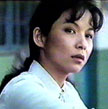 Jia-Zhen (Jen), eldest daughter; a public high school chemistry teacher and a pious Christian; exercised keenly by her role as a filial daughter; compelled by her Christian and Confucian morals to resist temptations of sensual pleasure and other enjoyments in life as inappropriate and immoral; invents an abandonment story by a lover as excuse not to be pressured into relationships that would take her away from her father; her self-imposed status of a spinster ends when she falls in love with and marries a colleague [Min Dao] in physical education department, and moves out from her father’s house
Jia-Zhen (Jen), eldest daughter; a public high school chemistry teacher and a pious Christian; exercised keenly by her role as a filial daughter; compelled by her Christian and Confucian morals to resist temptations of sensual pleasure and other enjoyments in life as inappropriate and immoral; invents an abandonment story by a lover as excuse not to be pressured into relationships that would take her away from her father; her self-imposed status of a spinster ends when she falls in love with and marries a colleague [Min Dao] in physical education department, and moves out from her father’s house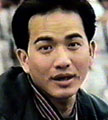 Min Dao, single and works in the physical education department at the same high school as Jiazhen; very athletic; rides a high-speed motor bike to work everyday; becomes a born again Christian when he and Jiazhen are married;
Min Dao, single and works in the physical education department at the same high school as Jiazhen; very athletic; rides a high-speed motor bike to work everyday; becomes a born again Christian when he and Jiazhen are married; Jia-Qian (Chien), second daughter working as a successful publicist for a Taiwan airline; independent and open-minded; still feels guilty for being happy and free because of the traditional morality on female virtue that puts the care of her father above her own enjoyment in life; enjoys cooking and domestic life but tries to be a “professional woman” to please her father; loses money on buying a condo apartment that turns out to be a scam; after her dates back out from commitments, turns down a job promotion to work in Amsterdam, and return to live in her father’s old house in Taipei now empty
Jia-Qian (Chien), second daughter working as a successful publicist for a Taiwan airline; independent and open-minded; still feels guilty for being happy and free because of the traditional morality on female virtue that puts the care of her father above her own enjoyment in life; enjoys cooking and domestic life but tries to be a “professional woman” to please her father; loses money on buying a condo apartment that turns out to be a scam; after her dates back out from commitments, turns down a job promotion to work in Amsterdam, and return to live in her father’s old house in Taipei now empty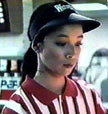 Jia-Ning, youngest daughter (20 years old) waitressing in a Wendy’s restaurant in Taipei; lets herself be involved with a boy [Guo Lun] trying to date one of her co-workers and marries him after she becomes pregnant; moves out of her father’s house;
Jia-Ning, youngest daughter (20 years old) waitressing in a Wendy’s restaurant in Taipei; lets herself be involved with a boy [Guo Lun] trying to date one of her co-workers and marries him after she becomes pregnant; moves out of her father’s house;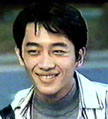 Guo Lun, originally involved romantically with one of Jia-Ning’s female co-worker in Wendy’s restaurant who plays hard to get; frustrated by traditional romance in which the man is expected to take the initiative; becomes interested in and quickly married to Jianing who is unconventional and not bashful in dating
Guo Lun, originally involved romantically with one of Jia-Ning’s female co-worker in Wendy’s restaurant who plays hard to get; frustrated by traditional romance in which the man is expected to take the initiative; becomes interested in and quickly married to Jianing who is unconventional and not bashful in dating
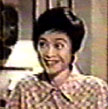 Jin-rong, daughter of Mrs. Liang and a single parent (after divorcing her American husband); finds Mr. Chu attractive and very attentive to her daughter, marries him and quickly becomes pregnant, very much to the chagrin and dismay of her mother
Jin-rong, daughter of Mrs. Liang and a single parent (after divorcing her American husband); finds Mr. Chu attractive and very attentive to her daughter, marries him and quickly becomes pregnant, very much to the chagrin and dismay of her mother